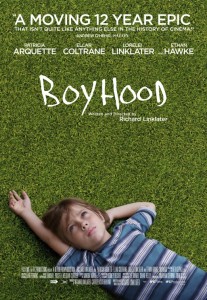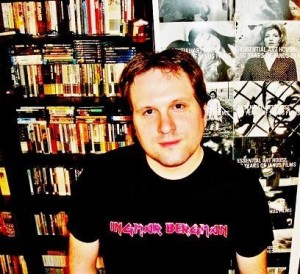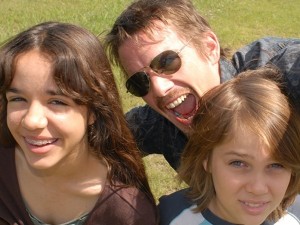
Movie Review: Boyhood
What We Liked
What We Didn't Like
What Richard Linklater’s Boyhood accomplishes is due the highest praise; as a feat of extended cinematic biography, there have been few experiments as rounded, detailed, and character-developed as this twelve-year gamble.

By design, the movie is episodically structured from young Mason’s point-of-view from ages 7-18 with the same actor, Ellar Coltrane, bringing his own personal growth to the project in ways usually only available to non-fiction works like Michael Apted’s half-century Up series. Unlike too many eager child actors, Coltrane is a responsive, sensitive performer; evident right from the first scenes around his divorced family with an ambitious, intelligent single mother of two (Patricia Arquette, finally given some non-network meat on which to chew) still figuring herself out. Linklater casts his own daughter Lorelei as Coltrane’s surrogate sister, further deepening the film’s meta-biography.
Mason’s other constant in a film full of life’s ephemeral characters is his namesake father (Ethan Hawke), a well-meaning musical vagabond just back from Alaska, “maybe to stay this time” his son hopes. Hawke does his best work for Linklater in each of their collaborations; grungy Mason Sr. imparts life-lessons to the kids, gives them examples of good art and music and drives an irresponsible yet cool muscle car. We think we know him by his symbols, but there is room in this nearly three-hour feature to explore everyone with a realism and depth un-afforded most movies and Hawke joins Arquette in drawing out their characters to full-flesh by film’s end.
More inclined to write incident rather than burdensome plot, Linklater is a master of walking-and-talking, Socratic cinema (last year’s fruitful dialogue-fest Before Midnight, his two animated cosmic chat sessions Waking Life (2001) and A Scanner Darkly (2006)), and so Boyhood’s lengthy running time absolutely flies by because we are always on the move to Mason’s next phase – curious to know more about his world at that moment and, just as sudden as the unblinking passage of time, Mason is sneakily another year older with little fanfare onscreen (sometimes a birthday cake) and deepening concerns. It is in the mid-teenage years that Coltrane begins to startle us with his rapid changes and ownership of the role. Each scene builds milestones in a mostly naturalistic way (the first drunken stepfather comes on a little iconic, but he’s not far-fetched).
I think about the over-emphasis someone like Cameron Crowe gives this kind of material and must restate my admiration for Boyhood keeping it loose, close, and honest. Linklater knows how to make a beautiful piece of widescreen feel like memories of home movies without hammering us with nostalgic tropes or stylization. In fact, the ending did not crush me the way I had anticipated; expecting a summation tactic like a montage to overwhelm us with the amount of time and imagery put into this wonderful movie. Linklater the philosopher refuses this audience-melting sure-fire and goes for the same thing he always has: a horizon and more life.

Gregory Fichter

Latest posts by Gregory Fichter (see all)
- Bela Lugosi’s Not Really Dead: A Vampire Movie Primer - November 18, 2011
- Ten Great Summer Grindhouse Movies - August 16, 2011
- The Ten Best Johnny Depp Movies - May 19, 2011



